Get Inspired
My Legacy: Nancy Hogshead-Makar
The My Legacy campaign was launched to recognize individuals who have made a lasting contribution to research and awareness of concussions and CTE, and encourages others to pitch in and create their own legacy. To read more about the campaign and learn how you can participate, click here.
Nancy Hogshead-Makar is a champion in both her fields. Before she became a civil rights lawyer and someone Sports Illustrated dubbed “one of the most influential people in Title IX history,” she was Nancy Hogshead, three-time Olympic gold medalist. At the 1984 Summer Olympics in Los Angeles, Hogshead-Makar walked away with gold medals in the women’s 100m freestyle, the 4x100m freestyle, and the 4x100m medley, and won silver in the 200m individual medley.

Posted: April 20, 2016
What separates Hogshead-Makar from other Olympic greats, however, is her work after her distinguished swimming career ended. She is the founder of Champion Women, an organization that advocates for girls and women in sports. Prior to founding her organization, she was the Senior Advocacy Director at the Women’s Sports Foundation, a lawyer at Holland & Knight, and was a law professor at Florida Coastal School of Law. Often her work has brought her to testify before Congress on behalf of women’s rights. She’s been honored with the Lifetime Achievement Award from the Women Owned Business Association, the Title IX Advocate Award from the Alliance of Women Coaches, NOW’s Courage Award, and induction into eleven halls of fame.
During the VA Brain Trust Summit in Washington, D.C. held Wednesday, April 20 by the U.S. Department of Veterans Affairs, Hogshead-Makar announced she is pledging her brain to the Concussion Legacy Foundation’s My Legacy campaign. The setting was significant to Hogshead-Makar, who has three uncles who served in World War II, one of whom is still living, and a nephew who is a Second Lieutenant in the Army.
Hogshead-Makar has always found that sports helped prepare her for life and she wants to make sure future generations have the same opportunity. We asked the Olympian, lawyer and advocate why she’s pledging her brain in pursuit of that goal, and what she wants her legacy to be.
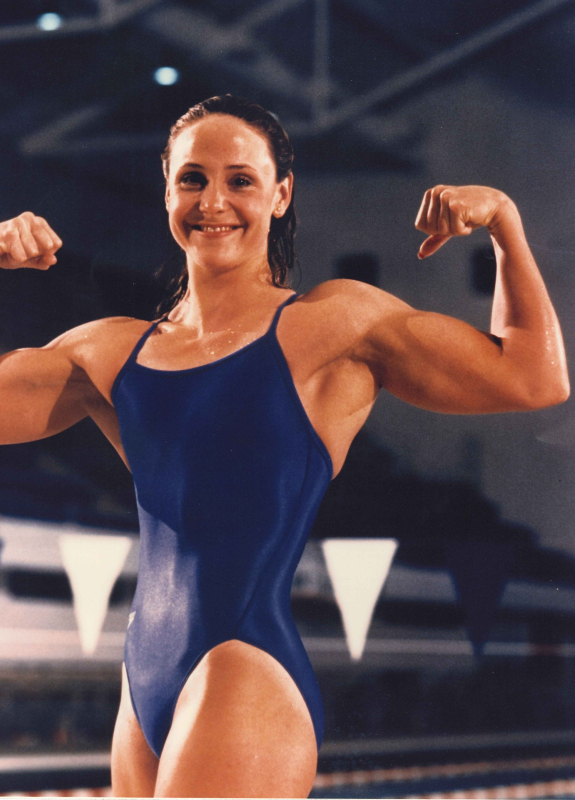
Why are you pledging your brain to the Concussion Legacy Foundation? What are you hoping comes from it?
All of sports need to band together on the issue of brain health, concussions, and safety measures. Yet while doing so, we don’t want to scare parents into withdrawing their kids from sports altogether; we all want to affirm the importance of youth sports for kids, letting families know that they can play safely. Donating my brain is part of the effort to make sure youth sports are safe.
What do you want your legacy to be?
I am a civil rights lawyer. I concentrate on issues of girls’ and women’s participation in sports; things like girls and women having equal participation, scholarships and treatment, free from sexual violence and abuse, and LGBTQ and employment discrimination. Part of that comes from wanting to increase the opportunities for all kids to be able to play sports, and to do so safely. I’m committed to increasing opportunities for kids to play … in safe ways, in ways that lead to positive-life outcomes like more education and employment, more STEM graduates and better emotional health measures.
Years ago, I noticed the concussion discussion was very football-centric and very much centered around men’s high-profile sports. I wanted to make sure that women and youth sports were in the messaging, so when new safety measure emerged, they weren’t limited to a small segment of sports.
We know, in the aggregate, that sports provide really unique educational and growth opportunities for kids. I always say the least important thing I got out of my swimming career is my Olympic gold medal. Don’t get me wrong— it’s very important to me — but the most important thing swimming did for me was learning about winning and losing, postponing short-term gratification for long-term rewards, and teamwork – things that are hard to learn on a blackboard. It’s what I want my kids to get out of sports. Sports participation isn’t just associated with better college graduation rates and more full-time employment; it’s been shown to cause these positive outcomes.
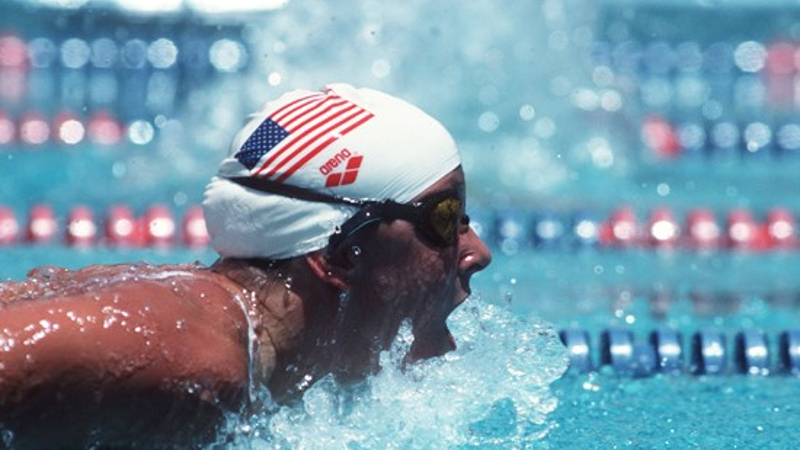
With clear scientific research, all of sports, whether it’s swimming, gymnastics, soccer, football or anything else, need to stick together and take a stand for the future of youth sports, by making sports as safe as possible.
How will pledging your brain affect youth sports?
By pledging my brain, I’m hoping to encourage others to do so. We must get as many athletes as possible to pledge their brains to make youth sports better and safer.
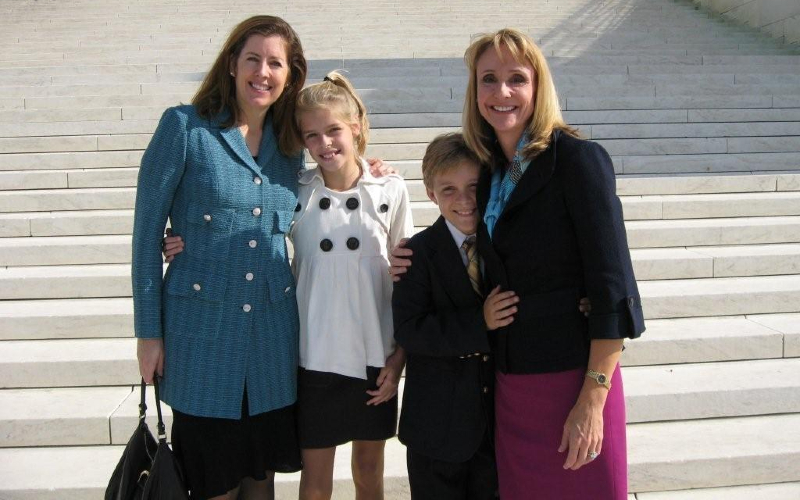
Would you like to see more prominent female athletes step forward and pledge their brain to research?
Of course. And I think they will when we get the word out. The importance of the Concussion Legacy Foundation mission will lead to more athletes, both women and men, pledging their brain for this important cause of brain health.
You’ve been a huge advocate of physical fitness among children. How will pledging your brain help promote that cause?
Anything I can do to be part of the team to increase brain health is a worthwhile endeavor, including pledging my brain.
My goal is to have more kids involved in sports, regardless of socioeconomic status or zip code. I’d hate for football to become like boxing; keeping the same rules and relegating the sport to kids with very few life-alternatives. I’ve read that participation numbers in youth football are going down. My hope is that these kids aren’t dropping out completely, and have safe sports alternatives to football.
At the same time, it is impossible for any activity or sport to be concussion-free. My niece got a concussion on the 4th grade playground, just horsing around. It took her out of school for almost four months, and she benefitted from the research from the Concussion Legacy Foundation. We’d have a concussion every third year on our team, as someone whacked the wall coming in from a hard backstroke set, or fell on the wet deck. All sports, including non-contact sports, need to be aware of brain health.
You have an illustrious post-athletics career in advocacy, namely for women and children in sports. What took you in that direction?
Without a piece of legislation called “Title IX,” I would not have had my college athletic career or my Olympic medals. No matter how good I was— American and world records – that no matter how hard I worked – I was in the water four hours a day, lifting weights and running – none of that would have mattered if it hadn’t been for this statute which said that schools that received our tax dollars had to provide men and women with the same educational opportunities. I was lucky; I graduated from high school in 1980, hitting the new flood of collegiate sports opportunities and scholarships at the right time. Unlike those that have always known opportunities, I was acutely aware of my good fortune, and I wanted to make sure many more women had that opportunity.
A good sports experience can set a person up for future success in life in every way; physical health, emotional health, and economically productive. A high school sports experience means at least a 40% decrease in breast cancer. It is the best proven way to reduce adulthood obesity. I could go on and on about the research here, but the point here is that these are outcomes that are good for everyone; for our country.
The solution to the new research on brain injuries and brain health is not to throw out these long-lasting benefits with the cleats, saying goodbye to the playing field altogether. Instead, our common goal is to eliminate head injuries as much as possible, and treat them the right way at all levels of sport, so kids can continue to play sports in a safe way. The question becomes: how do you make concussion safety universal in youth sports, so more and more kids can be involved in a safe way? I think donating my brain, being here today is the best way to accomplish those goals.
You May Also Like
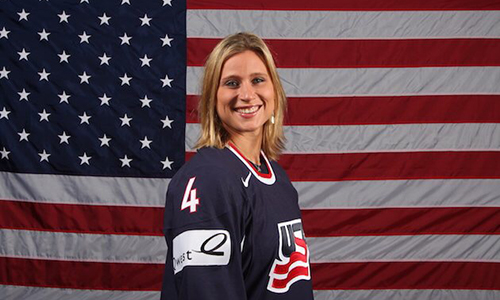
Hockey Hall of Famer and 4-time U.S. Olympian Angela Ruggiero wants to be an inspiration for female athletes to participate in concussion and CTE research.
Watch: Ruggiero on her legacy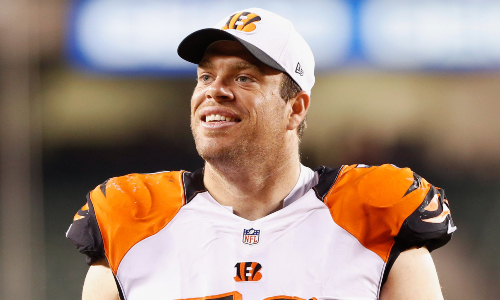
Former NFL player and NFLPA President Eric Winston took the #MyLegacyPledge to help the next generation of athletes.
Eric Winston on his legacy